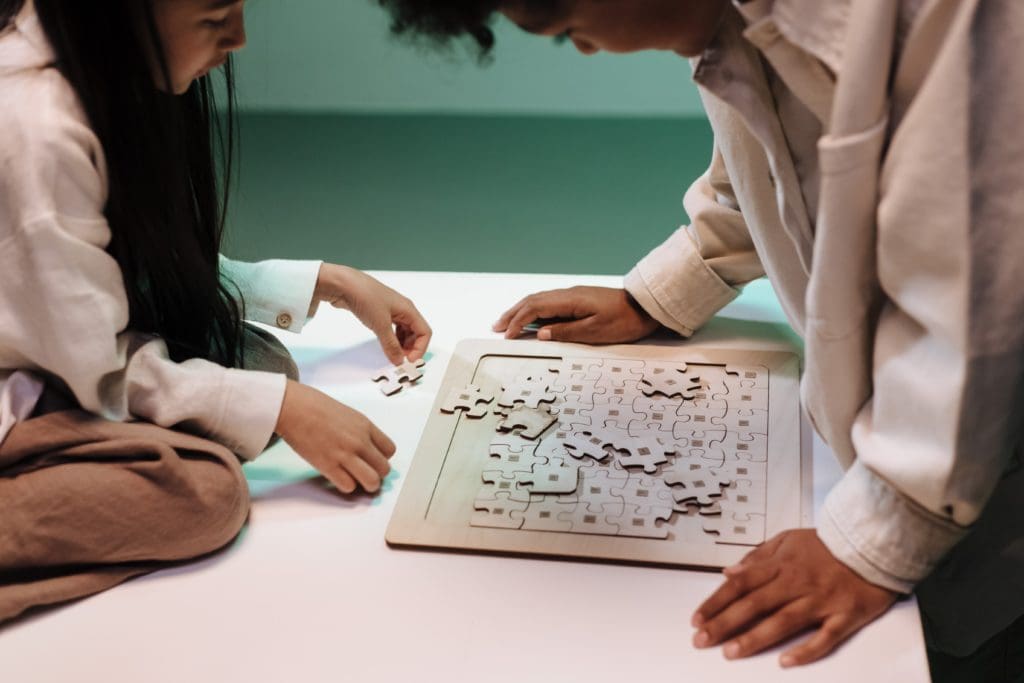Are you having trouble remembering and focusing? If yes, your brain needs some exercise. Like physical fitness, mental fitness is important and shouldn’t be neglected. It provides us with an increased mental ability to life’s activities in all its richness, whether the situation is a mere feeling, an external stimulus, or forethought.
In addition to increasing mental capacity, mental fitness can help improve memory and postpone cognitive decline, especially in older adults. The best part is that it doesn’t always require medications or surgeries. A simpler, more affordable, and even fun way to rocket your brain’s performance is through games!
You read that right. There are various games, so let’s start with table games. Check them out here.
Scrabble
While most people think of it as a simple vocabulary and memory game, Scrabble also requires elements of tactics, strategies, and focus too! Studies have shown that these mental tasks can wake up the inactive parts of the brain of people with Alzheimer’s disease and other neurodegenerative disorders. They recommend frequently engaging in Scrabble to help strengthen the brain of those with Alzheimer’s and delay its effects.
Another way Scrabble can help boost mental capacity is through interaction during the game. Interacting while playing scrabble can help players compare their perspectives with those of others and see things differently, widening their horizons. The fun part of interaction can also help in reducing stress levels. It’s beneficial since long-term stress can harm cognitive performance, resulting in irreversible changes in the brain.
Boggle
Boggle is another vocabulary game, but it has Scrabble beat. Unlike the latter, it’s a game of no luck. It gives players similar letters, so it’s basically a pure test of wits. It’s also fast-paced, ending within three minutes, whereas Scrabble lasts 10-12 minutes. That’s why sharpened problem-solving skills are seen more in Boggle than Scrabble. The shorter game time forces players to think more logically yet efficiently.
Nonetheless, both Scrabble and Boggle share the same benefits for the brain. First, as a word game, Boggle can heighten our vocabulary skills, attention, and quick-wittedness. Second, as a multiplayer game, the adequate social support experienced during the game may increase our level of oxytocin or our happy hormone. When it increases, our anxiety level decreases and then stimulates our parasympathetic nervous system (PNS), which, in turn, can help us calm down.
Sudoku
Aside from word games, puzzle games are also well-known as mental-boosting activities, especially in older adults. One example of this is Sudoku. Research has proven that the puzzle’s problem-solving and decision-making elements can help prevent and treat older adults’ cognitive impairments. Many assisted living, and skilled nursing facilities have been using Sudoku as part of their neurorehabilitation and cognitive remediation therapies.
Memorisation and deductive reasoning are other cognitive skills involved in Sudoku. Although many believe that Sudoku requires great mathematical skills, it’s actually not. The key to winning the game is just memory and logical skills. Specifically, the winning strategies are remembering numbers in specific places and analysing which number should be chosen to get the correct number placement.
Another skill one can get in Sudoku is concentration. The last thing players want is to get distracted and make mistakes, so they usually mind their space and time. Specifically, having imaginary algorithms to complete the puzzle and ensuring no digits are repeated in a section, row, or column require a lot of focus and attention. This makes players live in their world. This sharp concentration can help boost mental sharpness and slow down cognitive decline.
Rummikub
First popularised in the 90s, Rummikub is a very old board game, but many are still playing it nowadays. In fact, there are now digital versions of it, making it one of the table games online. Rummikub is a tile and multiplayer game that people of all ages can play because the rules are relatively simple, even for young kids. The rules are similar to classic Rummy card games, where players place coloured numbers in turn, except it’s a tiled spin.
However, although blind luck may enable players to get through a game, Rummikub still requires specific mental skills. These include concentration on the tiles and logical thinking skills for constantly generating ways to rearrange or add to the board. These elements may help sharpen your basic maths, pattern recognition, and planning skills. Hence, Rummikub can help the brain be active in a mix of luck and strategy.
Jigsaw Puzzles
Jigsaw is another puzzle game that can give the brain a thorough mental workout session. Putting the puzzle together requires many mental processes, including short-term memory, creativity, productivity, problem-solving ability, and concentration. These can also give an immediate uptick in other mental skills, such as originality and stress-management skills.
Research has also shown jigsaw puzzles can increase one’s IQ by four points. Specifically, scholars from the University of Michigan recommended playing jigsaw puzzles for at least 25 minutes daily to get this increase. Other studies have added that jigsaw puzzles can improve cognition in the left hemisphere and visual-spatial reasoning in the right hemisphere. Ultimately, all of these brain benefits can also mean delaying cognitive decline.
Final Thoughts
Any activity requiring any cognitive functions can work out your brain. Just like in any physical workout, the more you exercise your brain, the better it’ll work and the longer it’ll last.

